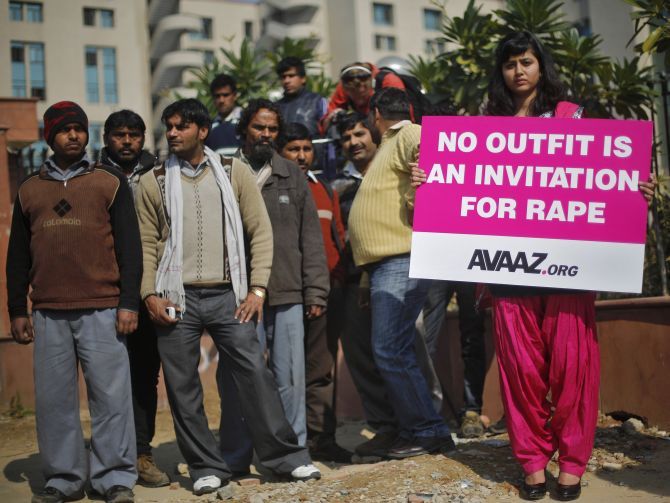It is time India started taking part in chats about itself instead of trying to ban them

Kill the messenger. That is the message India is sending to the world media as it creates a ruckus over India’s Daughter, a documentary on the horrific rape and butchering of a 23-year old woman in New Delhi in 2012. Instead of reflecting on the reasons, learning from them, discussing them and finding ways of changing male attitudes to women in India, we are hounding the documentary maker and banning her film. That is the wrong message to send to the world.
India’s Daughter, Leslee Udwin’s 60-minute documentary on Nirbhaya was never meant for telecast in India. It was for broadcast on BBC 4 in the UK on March 8, women’ day. It was however preponed to Wednesday night, UK time. “Given the intense level of interest in the Storyville film, India’s Daughter, we have brought transmission forward to 10 pm tonight, March 4 on BBC Four to enable viewers to see this incredibly powerful documentary at the earliest opportunity,” said a BBC Spokesperson.
It should however be watched by every Indian adult. Because it is time Indians started having mature conversations about themselves and their failings (not just their software or cricket machismo) with the rest of the world. If we want to be counted as a mature, liberal, democracy then the reaction to India’s Daughter is certainly sending all the wrong signals.
Remember the Partition? We did not discuss the Partition as a country with ourselves or with others. There were hardly any films or writing on it for fear of inciting passions. Except for the odd Saadat Hasan Manto or Garam Hawa (1974), there has been no conversation on what the cleaving of India into two parts did to us emotionally, physically and materially (Disclosure: my parents were Partition children). The one TV show that attempted to tackle the subject -- Tamas a six part series aired in 1988 -- faced protests and even attacks on Doordarshan’s offices. The state-owned broadcaster was the only one around at that time and it had rather bravely decided to air Tamas. But this lack of a cultural or social outpouring about Partition allowed wounds to fester.
MUST READ: 'Whatever Mukesh is saying, many people say that in normal conversations'
Home Minister Rajnath Singh says that the permission conditions for India’s Daughter have been violated. I asked the BBC their side of the story. This is what its spokesperson had to say;
“This harrowing documentary, made with the full support and co-operation of the victim’s parents, provides a revealing insight into a horrific crime that sent shock waves around the world and led to protests across India demanding changes in attitudes towards women. The film handles the issue responsibly and we are confident the programme fully complies with our editorial guidelines. The BBC will broadcast the documentary in the UK and was never due to broadcast the film in India. Assassin Films, the production company that made India’s Daughter has assured the BBC that it fully complied with the filming permissions granted by Tihar Jail and we are confident the film fully complies with our editorial guidelines.”
There is also talk that it was not meant for commercial broadcast. The BBC is a public service broadcaster and no advertisements are allowed on its channels in the UK since they are funded by the license fee that British TV homes pay.
And even if it is a commercially-run channel, does it matter? What matters is that these stories are told, issues discussed. This frankly is not about journalistic ethics. If they have been violated, the documentary filmmaker should be penalised. It is a reflection about how we feel about ourselves. Are we still a thin-skinned, insecure country that balks every time it is confronted by its spitting, littering, corrupt and venal side? If we cannot face up to our faults as Indians how will we even begin the journey of correcting them?
The world’s impression of India was formed when the rape happened, when any rape happens, when girls are butchered and buried before they are born. Why go after a documentary for simply stating the truth? Go after the rapist and the defence lawyer both of who seem to be saying the same thing -- that a woman who steps out of the house at night deserves to be raped. That is more horrifying than watching Udwin’s documentary.











